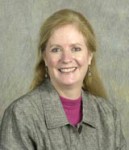Virginia Steel, the newly announced university librarian, said she hopes to focus on digitization of library materials and efficient spending when she relocates to UCLA this summer.
Steel, who now heads the library system at UC Santa Cruz, will start at UCLA in July, at a time when increasing enrollment is putting increased demands on the library system, said Gary Strong, who will retire as UCLA’s university librarian in June.
“The number of students enrolling increases every year but the number of librarians is getting smaller with the current funding,” Strong said.
The library, which depends solely on public funds, had to downsize operations by $1.9 million in 2009 due to state economic problems, leading to the suspension of many popular programs, such as Night Powell. Night Powell was later restored through private donations.
Public libraries across the state have experienced similar problems, Strong said. He said publicly funded libraries in the state have been suffering since the 1978 passage of Proposition 13, which aimed to reduce and cap property taxes. The reduction in state tax income led to a decrease in funding for public libraries.
“Library funding is not a recent problem. It has been going on since at least the 1970s,” Strong said.
The UC Santa Cruz library, has also been affected by a decreasing budget. Steel said that as head librarian she had to cut back in certain areas to use the limited funding efficiently.
For example, after analyzing the use of the reference desk, Steel cut back on reference desk hours and instead taught non-reference staff how to deal with frequently asked questions to save money, she said.
She thinks her experience at the UC Santa Cruz library will help her once she starts at UCLA, though she acknowledges that state funding is improving somewhat.
Alessandro Duranti, dean of social sciences and chair of the committee that selected Steel, said the committee thought Steel struck the right balance between digitizing library materials and maintaining physical collections.
Steel was chosen out of a group of about 10-15 librarians from around the world, Duranti added.
“She was the only one that everyone on the committee was 100 percent sure about,” he said.
A general movement across libraries is the digitization of materials, a focus Steel said she wants to bring from her experiences at Santa Cruz.
“Everyone looks for information on the internet. Many of the resources that (students) need are in libraries, so we need to develop the program in order to make more digital resources available,” Steel said.
The issue, however, is keeping the physical library spaces running and staffed. Steel said that she hopes to deal with the seating issues in campus libraries to maintain their status as useful studying locations for students.
“Not everything can be done on the internet,” Strong said. “Our spaces are being used now more than ever and it’s important to keep that running.”
